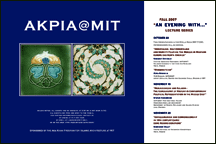Lectures, Conferences & Events» Past Lectures & Events
Stefan Heidemann
Nebukadnezar and Saladin – The Iconography of History in Contemporary Political Representation in the Middle East
Biography
She joined the teaching staff of Helwan University in Cairo in 2002 as Assistant Lecturer and became Lecturer there in 2006. Since 2005, she has taught Islamic art in the Department of Archaeology and Civilization in the Faculty of Arts of the same institution.
Stefan studied Islamic history, law, and economics at universities in Regensburg, Berlin, Damascus, and Cairo from 1982 to 1993 and received his PhD in 1993 from the Free University, Berlin. Appointed Research Assistant the following year, he completed his habilitation in 2001 at Jena University, Germany. After teaching at Leipzig University, he went back to Jena, where he teaches today. Working in different disciplines he always takes material culture and archaeology into account. Since the late eighties he has been involved in numerous excavations in Syria, first in al-Raqqa on the Euphrates, and later in Aleppo, Damascus, and other cities in Syria, Turkey, Iraq, and Mongolia. His habilitation thesis explores the renaissance of cities in the Middle East following the Seljuk conquest in the eleventh century. Although the Seljuks based their new power on fortified cities and fortifications, the still-visible transformation to a cityscape with enormous public activity occurred only later, in the second half of the twelfth century. The Aga Khan Fellowship enables Stefan to look into the reasons for this urban transformation.
